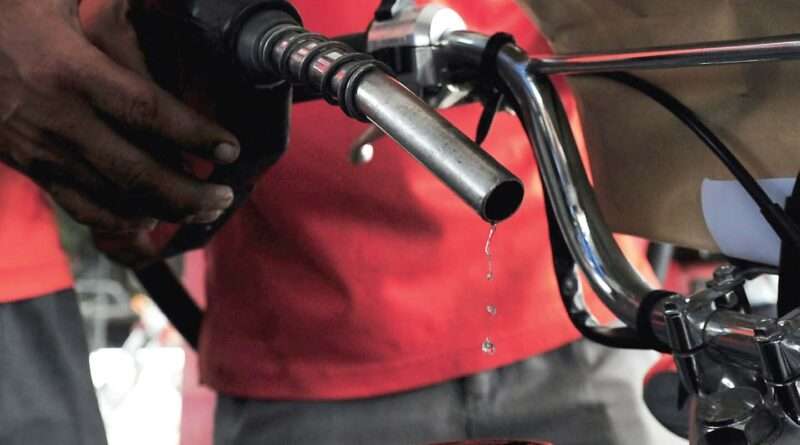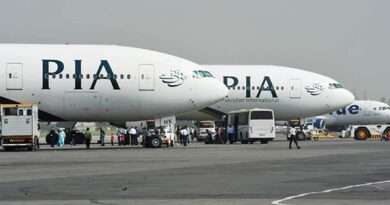Petrol Price Expected to Rise in Pakistan: Key Details and Government Approval Process
|
Getting your Trinity Audio player ready...
|
Pakistan’s fuel prices are expected to rise in the upcoming review, with the government planning a price hike on petrol, diesel, and kerosene oil. The federal government is set to implement a price increase that could have a significant impact on consumers and industries across the nation. This price adjustment is expected to be effective from January 16, 2025, and could lead to higher transportation and production costs.
The Ministry of Finance will issue an official notification after the final approval from Prime Minister Shehbaz Sharif. This article explores the potential increase in fuel prices, the process involved, and what consumers and businesses can expect.
Expected Fuel Price Increases in Pakistan
According to industry reports, petrol prices are likely to increase by Rs 3.50 per litre, while other fuel products are also projected to experience hikes. These adjustments are in line with global market fluctuations and the supply and demand dynamics of the oil industry.
Petrol Price Increase of Rs 3.50 per Litre
The petrol price hike of Rs 3.50 per litre comes as part of regular adjustments by the Oil and Gas Regulatory Authority (OGRA), which reviews fuel prices in Pakistan on a bi-weekly basis. This price revision is expected to be effective from January 16, 2025, with the new rates applying for the next fortnight.
This increase is primarily driven by rising global crude oil prices and the associated increase in import costs for petroleum products. Pakistan’s fuel prices are closely linked to global market trends, meaning fluctuations in international oil prices directly impact local costs.
Light Speed Diesel Price Hike
In addition to the increase in petrol prices, light speed diesel (LSD) is expected to see a price hike of Rs 5 per litre. This increase is partly due to fluctuations in the international market, where diesel prices have experienced a surge. The government regularly adjusts fuel prices to reflect global market conditions, which in turn ensures that the petroleum sector remains financially viable while safeguarding domestic demand.
Kerosene Oil Price Expected to Rise by Rs 6
The price of kerosene oil is also expected to increase by more than Rs 6 per litre. Kerosene oil is used primarily in rural areas and by industries such as agriculture, and an increase in its price could have wider economic implications. The rising prices of kerosene can strain the budgets of households and industries that rely on it as a source of energy.
Global Market Dynamics Affecting Pakistan’s Fuel Prices
The fluctuation in fuel prices is largely influenced by global oil market trends. The global crude oil market has seen significant volatility in recent months, largely driven by geopolitical tensions, supply chain disruptions, and fluctuating demand levels.
US Sanctions on Russian Oil Exports
One of the major factors influencing global oil prices is the recent US sanctions on Russian oil exports. These sanctions are expected to have a major impact on Russia’s oil exports to major buyers such as India and China. This shift in global trade patterns has created uncertainty in the market, pushing oil prices higher in some regions.
On January 9, 2025, Brent crude oil futures saw a decline of 0.67%, falling by 54 cents to $80.47 per barrel, while U.S. West Texas Intermediate (WTI) crude decreased by 0.67% as well, falling to $78.29 per barrel.
These price fluctuations in the global market are closely monitored by OGRA and influence the pricing mechanism of petroleum products in Pakistan.
The Role of OGRA and Prime Minister’s Approval
The process of determining fuel prices in Pakistan is highly structured and involves several steps. The Oil and Gas Regulatory Authority (OGRA) is the primary body responsible for reviewing and adjusting the prices of petrol, diesel, and other petroleum products in Pakistan.
OGRA’s Role in Price Determination
OGRA reviews the proposed price changes every fortnight, taking into account a variety of factors including:
- Global crude oil prices and their impact on the cost of imports.
- Exchange rate fluctuations between the Pakistani rupee and major foreign currencies, particularly the U.S. dollar.
- Local market dynamics, including demand and supply conditions.
- Taxation policies imposed on petroleum products.
After the review, OGRA submits its recommendation to the Ministry of Finance, which drafts the final proposal. The proposed price changes are then sent to Prime Minister Shehbaz Sharif for final approval.
Prime Minister’s Final Approval
Prime Minister Shehbaz Sharif is responsible for the final approval of the fuel prices. Once approved, the Ministry of Finance issues a formal notification confirming the new rates. These rates are expected to come into effect on January 16, 2025, and will remain in place until the next scheduled review in early February.
This structured process ensures that fuel price hikes are carefully considered and based on both local and international economic conditions.
Impact of Price Hike on Consumers and Businesses
The anticipated increase in fuel prices will have widespread effects across Pakistan’s economy. Both households and businesses that rely on petroleum products will face higher costs, which could influence everything from transportation fees to the cost of goods and services.
Impact on Transportation and Logistics
Higher fuel prices generally lead to increased transportation costs. This is particularly important for industries that rely on road transport for the delivery of goods. Public transport fares and freight charges may also rise as a result of the petrol and diesel price hikes, which could lead to higher overall prices for everyday goods.
Effect on Small and Medium Enterprises (SMEs)
Small and medium-sized enterprises (SMEs), which are already grappling with rising input costs, may find it more difficult to absorb the higher cost of energy. Manufacturing industries that rely on diesel and kerosene oil for their operations will also feel the financial strain. The overall cost-push inflation resulting from higher fuel prices could have a ripple effect throughout the economy.
FAQs:
1. Why are petrol and diesel prices increasing in Pakistan?
The increase in petrol and diesel prices is due to fluctuations in global oil markets, including factors such as rising crude oil prices and exchange rate volatility. Pakistan adjusts fuel prices periodically to reflect these changes.
2. How much will petrol prices increase in the upcoming review?
Petrol prices are expected to rise by Rs 3.50 per litre starting from January 16, 2025, based on the proposed adjustments by OGRA.
3. What other fuel prices are expected to rise?
In addition to petrol, light speed diesel is expected to increase by Rs 5 per litre, and kerosene oil prices may rise by over Rs 6 per litre.
4. How does global oil market affect fuel prices in Pakistan?
Global oil prices have a direct impact on the price of petroleum products in Pakistan. Changes in the cost of crude oil, such as due to international sanctions, supply disruptions, or changes in demand, affect the cost of imports and, in turn, domestic fuel prices.
5. When will the new petrol prices take effect?
The new petrol prices, if approved, are expected to come into effect on January 16, 2025, and will remain in place until the next scheduled review in early February 2025.
MUST READ
https://skipper.pk/2025/01/14/world-bank-recommends-debt-management-reform-pakistan/




